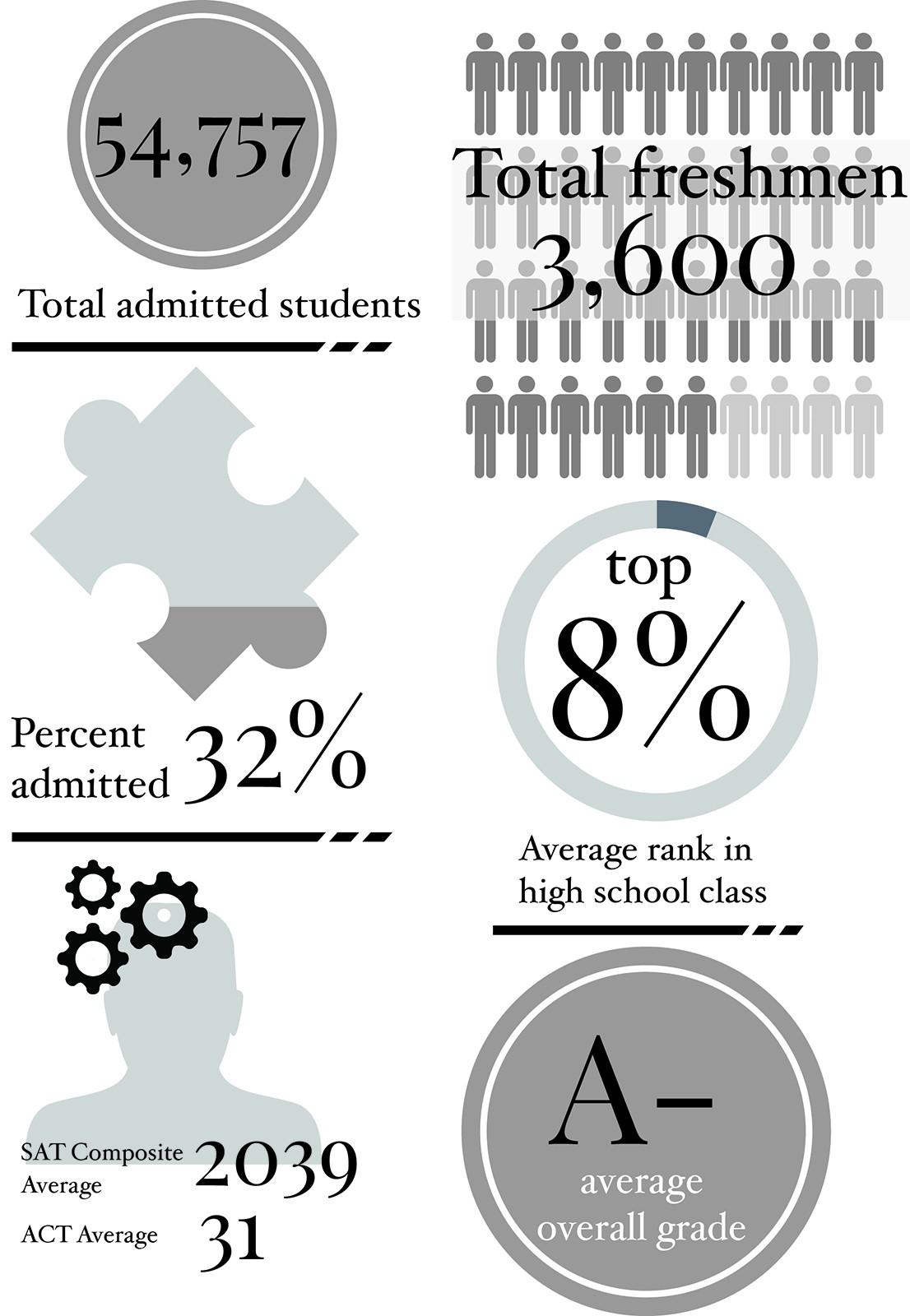Boston University Admissions received 54,757 applications for spots in the Class of 2019, setting a record high for the university.
The Class of 2019 had an acceptance rate of 32 percent and admitted students from all 50 U.S. states and 159 countries, said Kelly Walter, associate vice president and executive director of admissions. Applicants received decision notices on Saturday.
“Every student wants to go to a name brand institution, and we have so many opportunities available for students, whether it is research or internships or double degrees,” she said. “Students can do all of those things here and do all of them in four years. If you think about being ranked 37th in the world, BU is well-known whether you’re in China, Argentina, Germany or Iowa.”
Although there was only a 1.1 percent increase from last year’s Class of 2018 applications, admissions still received a record-breaking number of applicants this year, reflecting potential students’ interest in the university, Walter said. The number of applicants has increased 43 percent between 2010 and 2015.
Walter said the growth of the applicant pool and higher quality of applications has made admissions for BU more competitive.
“We’ve gone from an admit rate of 58 percent [in 2010] to 32 percent [in 2015] in a short period of time, and that is quite impressive. Each year, it has become more and more difficult to gain admission to BU,” she said.
BU’s international applicant pool has grown faster than the overall applicant pool, which Walter said can be attributed to the United States’ position as the “gold standard” for higher education.
“Since 2010, international applications have increased 156 percent. This year, we are planning on 24 percent of our class being international,” she said. “159 countries were represented in our applicant pool. That’s not quite the UN, but it’s pretty darn close.”
The average SAT score of the incoming freshman class has increased by 75 points since 2010, with another 14-point increase since 2014.
Several recently admitted students from the Class of 2019 said they look forward to the prospect of attending BU.
Olivia Falcigno, an incoming freshman from Orange, Connecticut, said she likes the academic motivation she sees in students at BU.
“I loved how BU was intimidating, but in a challenging academic way,” she said. “I’ve been on 42 college tours, and BU is the only one that I fell completely in love with.”
Dawei Wang, a recently admitted student from Tilton, New Hampshire, said a visit to BU convinced him to apply early decision.
“I know Boston has a lot of history, and BU, Harvard [University] and MIT [Massachusetts Institute for Technology] are all there,” he said. “I was really excited [to be accepted], and my parents were really proud of me. I feel like I can’t wait for September to get here.”
Reem Ali, an accepted student from South Bend, Indiana, said her brother attended BU and spoke highly about his experience, which encouraged her to apply. She has yet to decide whether she will attend BU.
“My brother lived there for almost three years,” he said. “He really loved it, and he raved about it, so I was interested in that, especially the people he met and the relationships he developed. It really intrigued me, so that’s why I applied.”
Kailynn Palaima, an incoming freshman from Marlboro, said she hopes BU will help her achieve her goal of becoming a lawyer.
“I’ll probably end up studying political science,” she said. “BU is located in the city, so it will definitely help me get an internship. I hope to continue on to law school at BU. It’ll be good to get used to BU and build connections.”
Ravn Skog, an incoming freshman from San Diego, said he will be the first member of his family to attend college.
“My mom never graduated high school, and my dad never finished college,” he said. “My mom left Chile because of the political turmoil. For them to hear that I got into Boston University was great. It made them so proud. I was so proud, and we were all crying.”
CORRECTION: A previous version of this article stated that the admit rate for 2015 was 33%. The story has been corrected to reflect this change.






















































































































